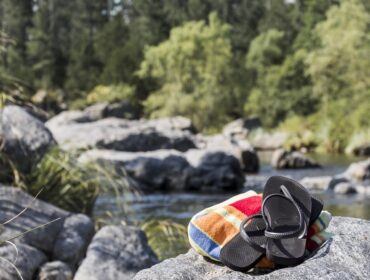Climate change, at least for Americans, seems to be a polarizing issue these days. There are basically two camps to be in when it comes to climate change: deny or accept. While many people prefer to keep their blinders on and go with the conclusion that it’s natural and there must be a conspiracy to make people afraid of nothing, the real proof lies in ecological events that are taking place all over the globe.
While it is true that our planet has experienced more than one major climate change event in its comparatively young life in the universe, the climate change that scientists have been warning about over the last couple decades is being accelerated by human activity. Greenhouse gases, rising sea levels, and ocean acidification are all byproducts of activities for which we implement combustion of fossil fuels, deforestation, and animal agriculture, just to name a few.
Scientists are ardently studying these effects in order to give the world the most accurate depiction of the damage we’re causing on a daily basis, and a forecast for our future if we continue on the same path. Although the signs are all around us if we actually look, sometimes it takes a colossal example to make us believers. There couldn’t be a more sobering piece of evidence that our glaciers — which contain roughly 69 percent of the world’s freshwater — are experiencing the devastating effects of climate change than the footage below, taken in the Arctic. As the end of the clip points out, glacier calving is quite normal in the Arctic, but the acceleration of these events is astonishing when compared to the rest of recorded history.
Even if it is an event that has played out more than once in Earth’s history, the very real difference is what it means for human civilization as a whole. Many of you reading this article may be saying to yourselves, “Well I won’t be around when all the ice melts, so it doesn’t affect me and there’s nothing I can do.”
But we already are being affected by climate change, in storms that are becoming increasingly powerful, islands that face imminent eradication due to rising oceans, marine ecosystems and creatures that are changing due to acidification, and depletion of fresh water and food sources due to extreme drought caused by shifting weather patterns. Whether directly or indirectly, the consequences for abusing our resources will touch the life of every person on Earth, and the precious time we have to make significant changes is swiftly running out.
Related articles: Carbon Footprint: What Is It & Why Does It Matter? & The Human Role in the Destruction of Wildlife Habitat
Featured Image from Melissa Bradley/Unsplash




